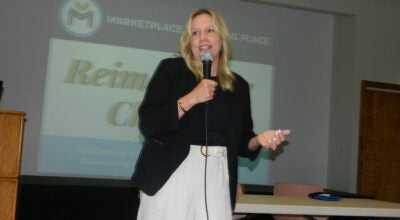Spencer boards want to attract business
Published 12:00 am Wednesday, March 23, 2011
By Hugh Fisher
hfisher@salisburypost.com
SPENCER — In a combined meeting, the Spencer Board of Aldermen and Spencer Planning Board discussed how to get businesses to locate there.
Officials can’t control every one of the factors involved.
But there is one factor the two boards agreed to consider: multiple business uses under the same roof.
Right now, each structure is allowed one principal use, and a permit can be issued for a business there in a matter of days.
But adding an additional use at the same site — for instance, a bookstore that also wants to act as a coffee shop — would require the Planning Board’s approval.
And that can potentially add months to the process.
Alderman Jeff Morris said there was no real reason for that to be the case.
“If someone wants to have a bait, tackle and religious novelty shop, all of which are permitted uses, they should be able to do that,” Morris said.
Jim Gobble of the Planning Board said that the current regulations wouldn’t automatically prevent that.
But in the discussion that unfolded afterward, members of both boards came to a consensus that getting rid of “principal” uses might be positive.
Morris said that, in a market driven by supply and demand, a demand for a business should be easier to meet.
“If there’s something that doesn’t harm public health, safety and welfare, it should be permitted,” Morris said.
Similar changes to that effect are already being made.
Earlier Tuesday at their own meeting, members of the Planning Board voted unanimously to allow pawn shops as a permitted use in the central business district.
Mayor Jody Everhart said there have been pawn shops downtown before, but not since the current zoning ordinances were adopted.
Land Management Director Dustin Wilson said the decision was a response to a request by a potential business owner.
Alderman Tracy Aitken expressed some concern over the potential combinations of businesses.
Others said the market would sort that out — that businesses would only open if there was demand.
Gobble said caution ought to be exercised. “Zoning is a system of checks and balances,” he said.
What Gobble said has been a problem is the town’s sign ordinance.
The Spencer Historic Preservation Commission places strict requirements on business signage.
Several aldermen mentioned hearing from business owners about problems meeting those criteria, including cases where signs they’d paid for were not permitted.
It was Robert Nance of the Planning Board who brought up the issue of public perception.
“Real commercial businesses … are looking at rooftops, they’re looking at income.”
He said that, within Rowan County, there was a perception that the North Rowan district’s schools aren’t as good.
As a result, that was keeping more families from moving to the area.
“I don’t know why,” Nance said. “I don’t know anything about the North schools.”
But a lack of residents would, in turn, would keep big-box stores and national chains away.
On the plus side, Nance said, a concerted marketing effort could help spread the word about Spencer’s opportunities.
Aitken also said that a marketing approach for small towns, similar to what Downtown Salisbury Inc. does in the city, could help attract business investment.
Other changes that were discussed include minor adjustments to reduce costs for businesses.
One example: not requiring a full gutter and curb in asphalt parking lots if an engineer says there’s little chance of erosion.
Members of both boards agreed there’s no easy solution to bring more businesses downtown.
But they left with a consensus that they should keep the lines of communication open.
Everhart invited the Planning Board to meet with them again, especially during the upcoming meeting with Robert Van Geons of the Salisbury-Rowan Economic Development Corp.
Contact Hugh Fisher via the editor’s desk at 704-797-4244.





